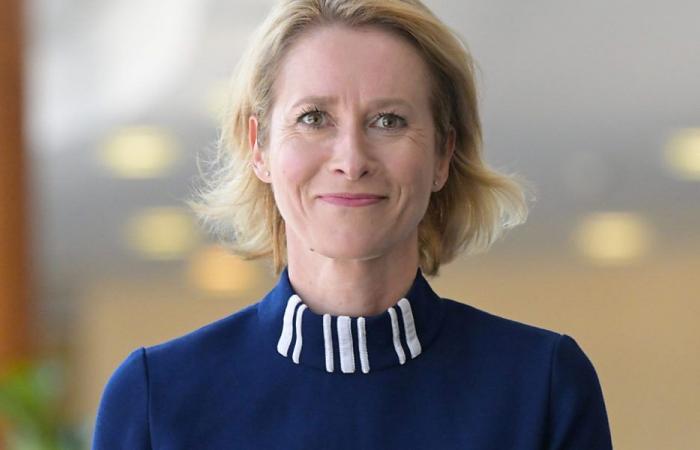The prospective members of the new European Commission are giving their oral presentation before Parliament. First in line, the new head of European diplomacy and former Estonian Prime Minister Kaja Kallas and the Italian Raffaele Fitto, responsible for territorial cohesion.
The six potential vice-presidents of the new Brussels executive will appear in succession before MEPs in Brussels for hearings lasting at least three hours, before being dubbed or not in a vote.
Kaja Kallas began her grand oral presentation by calling on the Union to support Ukraine “as long as necessary, and with as much military, financial and humanitarian aid as necessary”.
Raffaele Fitto insisted that he was “not there to represent a political party or a member state”, but to “affirm his commitment to Europe”.
Belonging to the extreme right
Because the left and the center cannot digest that Mr. Fitto obtained the title of vice-president even though he belongs to Fratelli d’Italia, the far-right party of the head of the Italian government Giorgia Meloni.
“This vice-presidency is delicate” and will generate “a lot of discussion,” warns Italian centrist Sandro Gozi (Renew). “The final outcome remains open and uncertain.”
Political groups are, however, cautious because bringing down a rival exposes them to reprisals during the hearing of candidates from their own camp on the same day.
Stayed must prove his worth
In the center, Macronist Stéphane Séjourné will face parliamentarians from 2:30 p.m. Considered too discreet in his previous role as Minister of Foreign Affairs, the 39-year-old Frenchman will have to prove that he is up to the vast portfolio on industrial strategy that he inherited.
Especially since he was chosen at the last minute in mid-September by French President Emmanuel Macron who had initially expressed his intention to reappoint Thierry Breton despite his conflict with Commission President Ursula von der Leyen.
Standoff with China, Trump
His responsibilities are crucial at a time when Europe is in the middle of a commercial standoff with China and where the election of Donald Trump in the United States is raising fears of an explosion in customs duties to access the American market.
During his hearing, the Macronist should also be teased about the controversial free trade agreement between the EU and Latin American Mercosur countries, which France contests but which the Commission seems to encourage to sign.
For Mr. Séjourné, “it will be fine, he is intelligent and knows Parliament well,” considers Dutch MEP Dirk Gotink (EPP, right), recalling that the centrist led the Renew group there from the end of 2021 to the beginning of 2024.
The hearings of the Romanian Roxana Minzatu, responsible for social affairs, and the Finnish Henna Virkkunen (digital sovereignty) are also considered to be without great risk.
Ribera in the sights of the right
The Spaniard Teresa Ribera will be in the sights of the right and the far right. The socialist inherited a major portfolio on ecological transition and competition.
Minister of Pedro Sanchez, she will undoubtedly be questioned about the political situation in Spain after the deadly floods which shook the country. And his opponents intend to challenge him on his opposition to nuclear power.
“It will be attacked,” fears French socialist Christophe Clergeau. But, he adds, “if the EPP (the right) shoots Ribera, we will shoot the entire college” on November 27, the date of a global vote on the new executive team which could take office at the beginning of December.
Possible sequels
After Tuesday’s grand orals, analyst Sophia Russack of the Center for European Policy Studies thinks “there could be additional written questions or requests for second hearings.”
But, ultimately, the commissioners “will all pass, because it is politically complicated. The EPP (right) is very powerful and the social democrats will not want to expose Teresa Ribera”.
Nineteen first commissioners have already received the approval of deputies. Only the Hungarian Oliver Varhelyi (animal health and welfare) is still waiting to be decided on his fate.
The hearing of this close friend of Hungarian Prime Minister Viktor Orban gave rise to criticism of his reluctance to answer questions on women’s access to abortion or on LGBT+ rights. In 2019, three commissioners were challenged, including Frenchwoman Sylvie Goulard.
This article was automatically published. Sources: ats / afp






